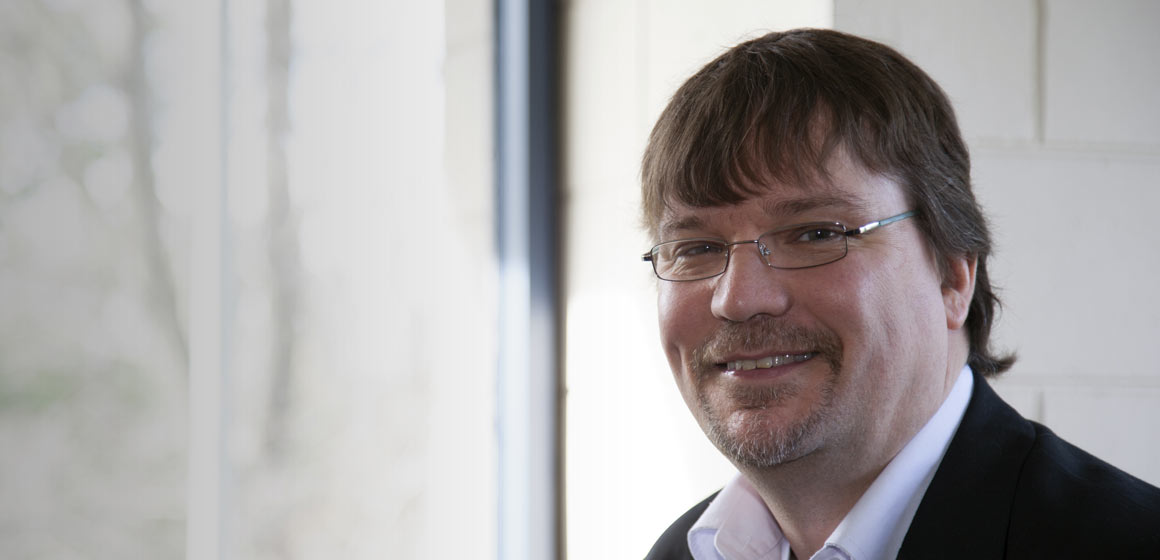 Monday 23 February 2015 1:02pm
Monday 23 February 2015 1:02pm
Associate Professor Joe Boden is making his mark on the internationally recognised Christchurch Health and Development Study.
During its more than 30 years of existence, researchers from the Christchurch Health and Development Study (CHDS) have published an average of one paper every month. Associate Professor Joe Boden has worked on the study for almost a decade. With a strong work ethic and an aptitude for quickly producing research papers, he was at home from his first day with the group.
“We don't muck around. I guess I fitted in well here because I can work fast and I like the pace of this environment.''
The CHDS collects in-depth data on the health, education and social outcomes of a group of more than 1,000 people born in Christchurch in 1977.
It is regarded as one of the best longitudinal studies in the world and, over the years, the results have enlightened debate and informed government policy relating to areas such as early intervention for at-risk children, cannabis and other drug use, domestic violence, abortion and mental health, suicidal behaviour and the later mental health impacts of childhood sexual abuse.
While the researchers' pace is hectic, quality does not suffer.
“As far as academic environments go, this is top class. We have very high standards for our work, which is why we are published in so many top journals. We pay a lot of attention to our craft and a lot of that is down to David's commitment to quality over all the years the study has been going,” Boden says.
David is CHDS director Professor David Fergusson. He has been with the study from its inception and, in 2010, was awarded the University of Otago's Distinguished Research Medal as acknowledgement of his outstanding scholarly achievement overseeing the study.
Although everyone working on the study covers a wide range of topic areas, Boden oversees the research related to alcohol-use disorders in the cohort and, despite being in a research-only position, has taken on roles in teaching and postgraduate supervision in this area.
Boden came to the CHDS with the right set of skills, but has learnt many more under the tutelage of Fergusson.
“David has this amazing ability to focus on a research question and formulate it quite precisely. He has an uncanny ability to picture what the research presentation will look like. It really is an art. You can get tied up in knots about how to structure things, but David sees through all the fluff to the most logical way. I think some of that has rubbed off on me. My skills have definitely improved in that area.”
An experimental social psychologist who trained and worked in a number of American and Australian universities, Boden moved to Canterbury in late 2002. After securing a seldom-advertised position with the CHDS, he quickly set to work becoming a productive part of the team.
“At the Christchurch Health and Development Study we have a very sophisticated approach to statistical analysis. I knew it was going to be a steep learning curve, but I was excited by that.''
“We have been very lucky also that so many of our participants have continued to share aspects of their lives with us.”
The first project he worked on was looking at the intergenerational transmission of intimate partner violence. “I was absolutely fascinated by it. I got the bug from then on in.''
While Boden has been focusing on papers relating to alcohol and other substance use, an area the study will cover in future is how participants are faring economically. The cohort is now aged over 35, so how aspects of their early lives affect their parenting will also be examined.
Because it is a longitudinal study, the CHDS has to ask consistent questions over time. However, Boden has managed to make his mark on the study by incorporating a new focus on self-esteem, with questions relating low self-esteem to measures such as mental health, substance use, violence and hostility, and risky sexual behaviour. The data show that low self-esteem isn't related to these negative outcomes.
Another new area of investigation is around the experience of infertility, as this is an increasingly common problem in society.
The study is also looking at the psychological effect of the Christchurch earthquakes. The researchers are in a unique position to gather facts as just over half of participants were in Canterbury for the majority of the earthquakes, providing an ideal basis for comparison. Early data show that those who suffered the greatest “shaking and breaking” during the major earthquakes have struggled most to deal with ongoing earthquake-related problems, such as difficulties with insurers.
Boden says it is a privilege to work on a study dealing with such important issues. With that privilege comes an obligation to communicate what is happening on the study to the public.
“We have been lucky with continuous funding to do our work. We have been very lucky also that so many of our participants have continued to share aspects of their lives with us. We need to repay that support. Communicating the results of your work is as important as doing the work.''
Funding
- Health Research Council